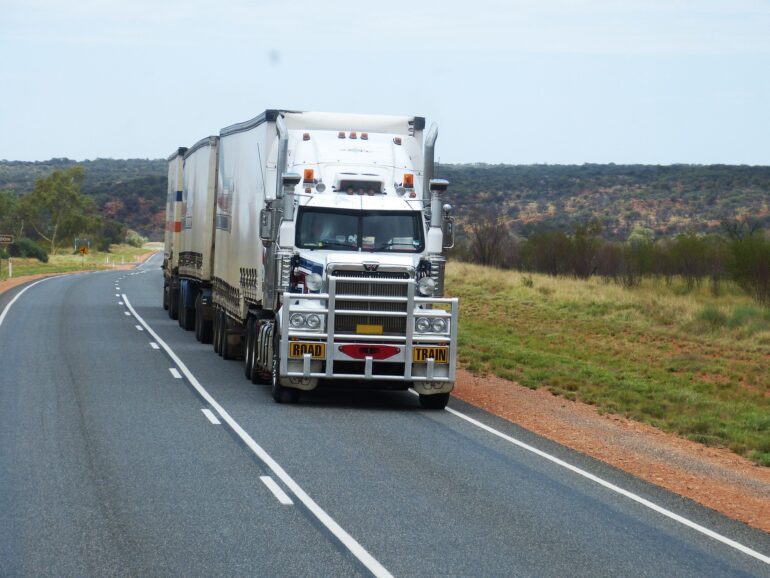TL;DR:
- Eurora’s report highlights the use of AI and machine learning to streamline cross-border trade and comply with different regulations.
- AI can automate cross-border documents for VAT, duty amounts, and declarations.
- Accurate and timely compliance with customs requirements is crucial to avoid penalties and delays.
- AI can help shippers cope with customs requirements and provide dynamic routing analysis.
- Cargo thefts rose 7.5% YoY in April in Mexico, and highways remain risky for truckers.
- Kenworth and Freightliner trucks were the most stolen in the past 12 months.
- Arrive Logistics opened a new office in Phoenix and plans to expand its workforce by the end of the year.
- Victoria College in South Texas is launching its own truck driving course to address the demand for truck drivers in the region.
Main AI News:
A recent report by Eurora delves into the increasing impact of AI and machine learning (ML) on cross-border trade. The report titled “The Case for AI in cross-border trade” highlights the growing complexity of international trade regulations and the challenges faced by logistics providers and e-commerce businesses. The report suggests that AI and ML can help streamline international shipments, enabling shippers to comply with diverse cross-border trade regulations enforced by different countries.
Eurora, an Estonian-based company with its U.S. headquarters in Miami, uses AI to automatically manage cross-border documents for requirements such as value-added tax, duty amounts, declarations, and more. With more than 250 clients and millions of parcels being shipped every day, Eurora has become a leader in using AI to simplify cross-border trade.
According to Chris Lentjes, Eurora’s CEO of U.S. operations, AI and ML are hot topics among logistics providers and e-commerce businesses. He explains that AI’s functionality is about continuous improvement and speeding up decisions in the supply chain. Failure to comply with customs requirements or mistakes with cross-border documentation can lead to higher taxes and duties, fines, seizures, or delays of a shipment. Therefore, the need for accurate and timely compliance is crucial.
Lentjes suggests that AI can help international shippers cope with the customs requirements for each shipment, including the U.S. STOP ACT, Singapore’s new GST rules, Dubai’s customs duty charges, the U.K. Customs Declaration Service, Canada’s CARM importing regime, the European Union’s Import Control System 2, and Mexico’s Carta Porte Supplement. Shippers and logistics operators must also provide accurate harmonized system codes that indicate what’s inside a particular shipment.
In addition to cross-border compliance, Lentjes believes AI can help shippers through dynamic routing. He explains that AI can analyze inputs such as weather conditions or a strike and incorporate live data to determine the best route for a shipment dynamically.
The rising trend of cargo thefts in Mexico is becoming a major concern for the trucking industry. According to the National Association of Vehicle Tracking and Protection Companies (ANERPV), cargo thefts rose by 7.5% year-over-year in April. ANERPV recorded a total of 142 cargo trucks in its network that were either robbed or stolen during April alone. Furthermore, a total of 519 tractor-trailer thefts were reported from January through April. This significant increase in cargo thefts indicates that highways across Mexico continue to be risky for truckers and logistics providers alike.
The state of Mexico ranked the highest in cargo thefts, followed by Puebla, Guanajuato, Jalisco, and Veracruz. More than 31% of the cargo theft robberies occurred during the day, between 7 a.m. and noon, while over 28% of the incidents occurred between noon and 7 p.m.
The Mexican Association of Insurance Institutions (AMIS) reported that Kenworth tractor-trailers were the most stolen trucks in the past 12 months, totaling 1,906 units. Freightliner tractor-trailers ranked second for most stolen trucks over the past 12 months, accounting for 702 cases. The situation in Mexico highlights the importance of implementing tighter security measures to prevent cargo theft and ensure the safety of truckers and their cargo.
On a positive note, logistics companies are continuing to expand their operations in the United States, despite the challenges in Mexico. Arrive Logistics, a Texas-based logistics firm, recently opened a 15,000-square-foot office in Phoenix, which will initially employ 30 people. The company plans to expand its workforce to up to 60 workers by the end of the year. Arrive Logistics has over 1,700 employees and a network of 70,000 carriers, with clients that include U.S. Foods, Kellogg’s Co., Dairy Farmers of America, and Samsung Electronics Co. The company’s continued expansion indicates the growing demand for logistics services in the United States.
In addition, Victoria College in South Texas is taking steps to address the demand for truck drivers in the region. The college is launching its own truck driving course, which is being funded by two grants totaling more than $630,000 from the Texas Higher Education Coordinating Board.
The grants will be used to purchase four tractors for use in truck driving classes in Victoria and Gonzales, Texas, and to train instructors. The new truck driving course will allow the college to train up to eight students in Victoria and up to four students in Gonzales every six weeks. The program aims to meet the needs of the Victoria community and address the ongoing truck driver shortage in the region.
Conlcusion:
The rising trend of cargo thefts in Mexico and the increasing complexity of cross-border trade regulations highlight the need for logistics providers and e-commerce businesses to adopt AI and machine learning to streamline operations and ensure timely compliance. On a positive note, the continued expansion of logistics companies like Arrive Logistics indicates growing demand for logistics services in the United States.
Additionally, the launch of Victoria College’s truck driving course will help address the ongoing truck driver shortage in the South Texas region. These developments suggest that the logistics industry will continue to evolve and adapt to meet the challenges and opportunities of the market.

